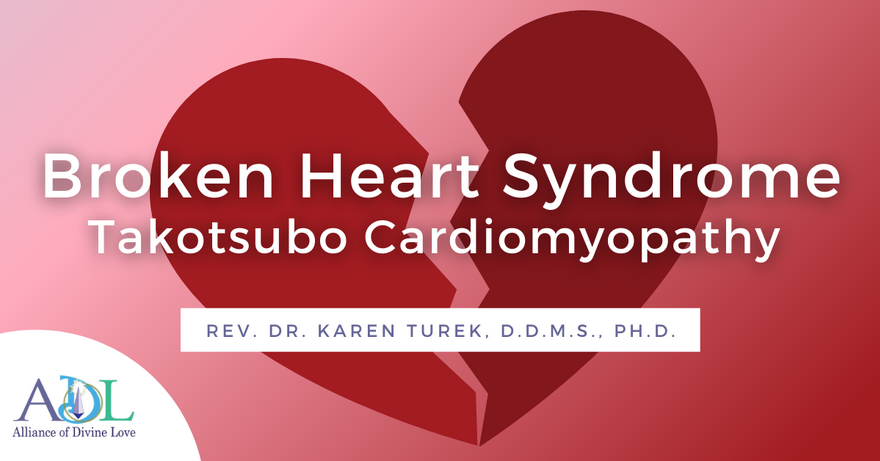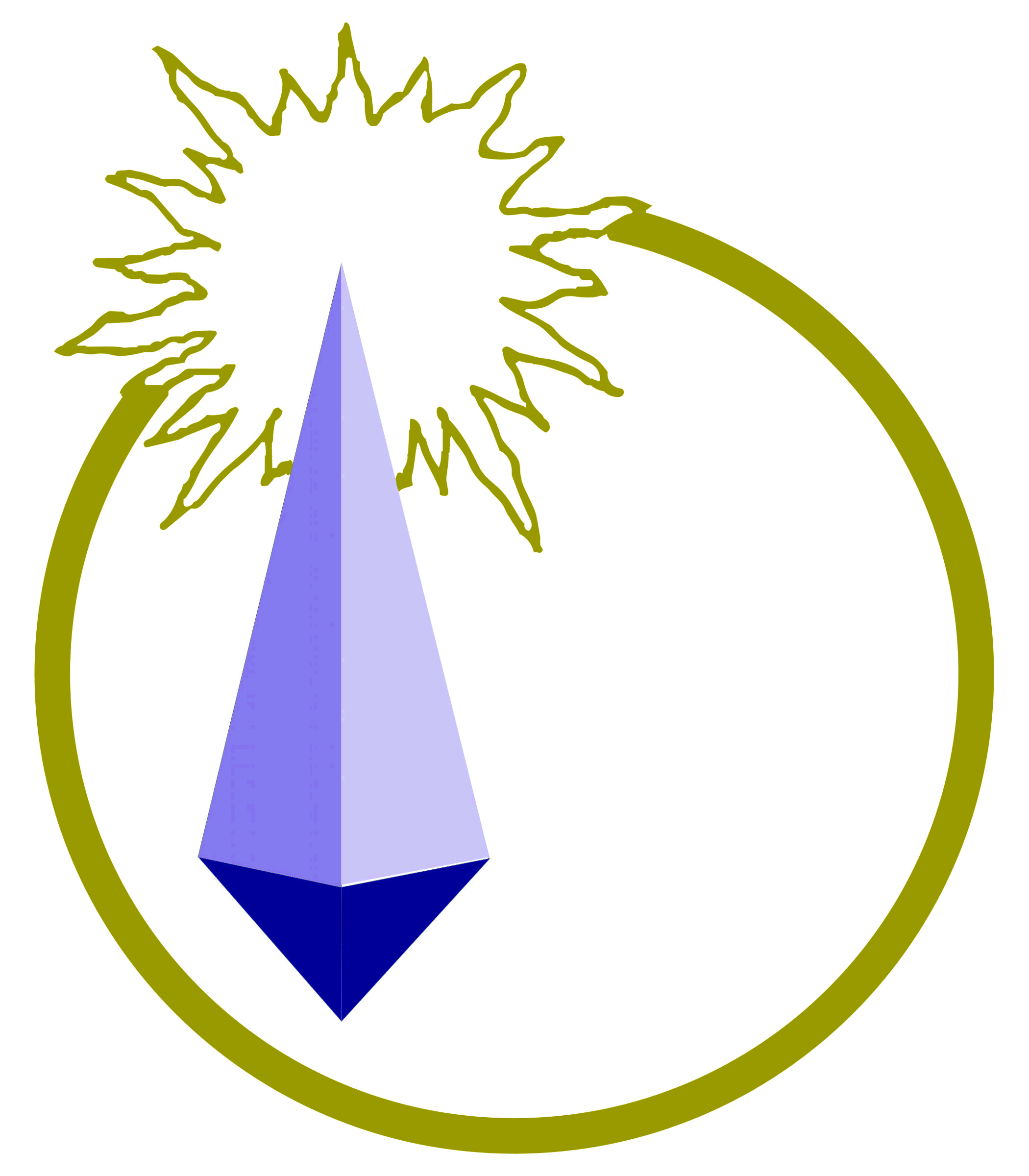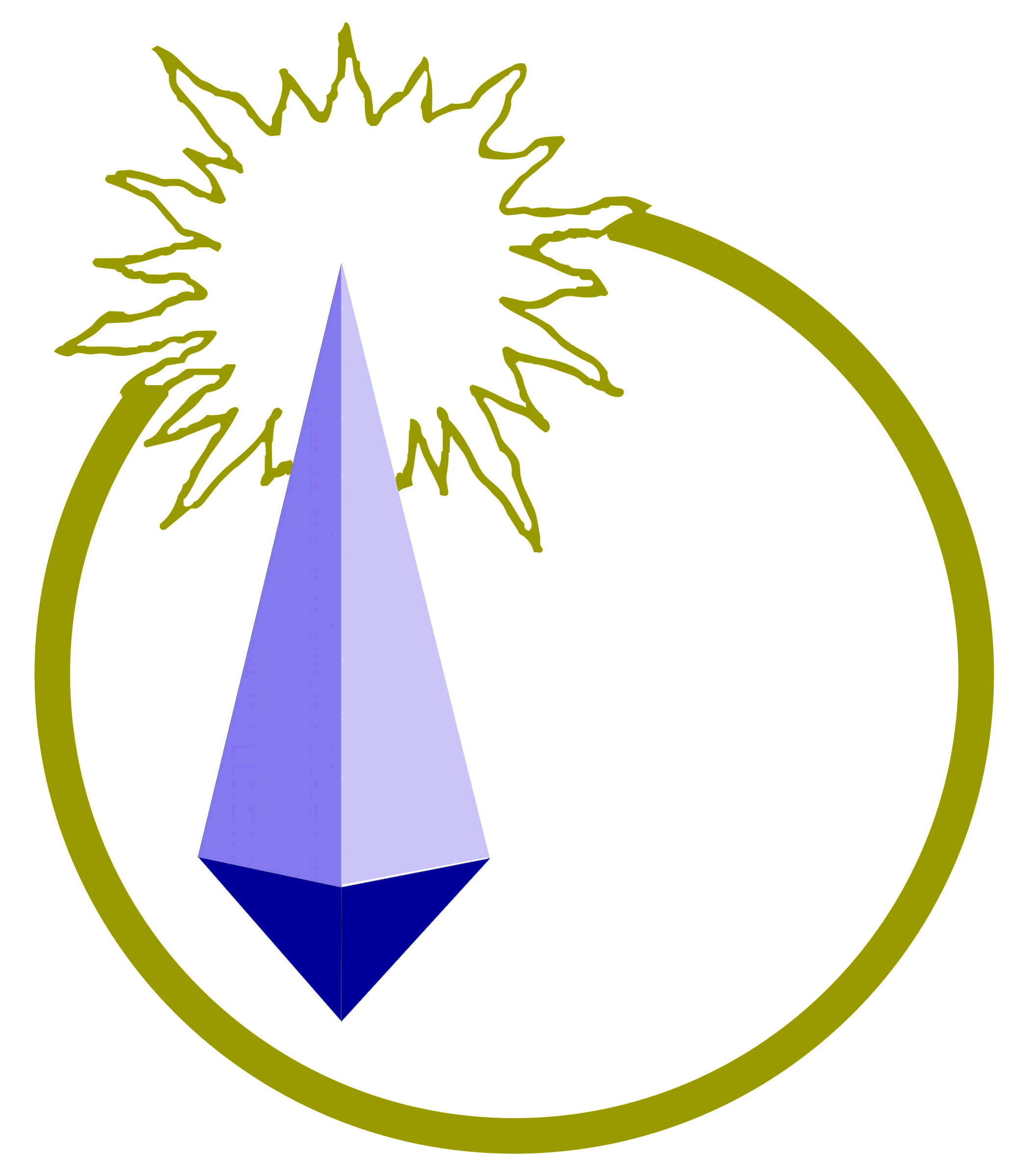Broken Heart Syndrome - Takotsubo Cardiomyopathy

by Rev. Dr. Karen Turek, D.D.M.S., Ph.D.
I am often asked, as a bereavement counselor, “Has anyone ever died of a broken heart?” Unfortunately, the answer is “yes.” But allow me to elaborate on my answer. Firstly, most all cases of broken heart syndrome are temporary and do not result in a permanent condition or death. The symptoms that are experienced are brought on by acutely stressful situations and extreme emotions such as the loss of a loved one, a serious accident, a sudden illness, a natural disaster or even a positive event like winning a lot of money.
Broken heart syndrome is often referred to as cardiomyopathy, takotsubo cardiomyopathy (Tako tsubo are Japanese octopus traps that resemble the pot-like shape which the stricken heart temporarily takes on) or apical ballooning syndrome. It is believed to be brought about by a sudden rush of surging stress hormones that “stun” the heart. This causes a temporary ballooning of the left ventricle. The stress induced characteristics of broken heart syndrome are rarely fatal but need to be addressed by a medical physician immediately. This is nothing to excuse, or ignore, as a self-diagnosed temporary condition. It is real and the symptoms can lead to short-term heart muscle failure that resembles a heart attack. I always suggest to the newly bereaved that they see their primary medical doctor after the loss of a loved one, even if they feel physically well, to inform the doctor of their loss and to get a wellness check. The effects of stress can be fatal!
The most common symptoms experienced are: chest pain and shortness of breath. I have also had folks, mostly women by the way, that describe the feeling of an invisible band wrapped around their chest that constricts breathing. A familiar statement is, “I just can’t get a deep breath.” I have pointed out that a common response to shock, or acute stress, is for someone to actually hold their breath. Completely unaware of what they are doing, a simple cue to “breathe” is often enough to bring awareness and return to a normal breathing rhythm.
Awareness is the best preventative medicine for many conditions and I encourage you to visit The Mayo Clinic and/or Johns Hopkins University websites to read their articles about broken heart syndrome.
Stay well, stay safe, stay informed. And...don’t forget to stay in touch!
-Dr. Karen


7 comments
Thank you for this wonderful information.
I really appreciate this info and know this to be true. Thank you for sharing....
Namaste! Rev. charlotte
Rev. Dr. Karen,
Thank you so much for this information...so helpful for your fellow ADL ministers to have this heart-felt, medically-sound, description of what I call: a heart broken open. ~ Rev. Lynda
Rev. Dr. Karen,
Thank you for bringing attention to an often debilitating condition. After having been a caregiver for a loved one (7 years), I was diagnosed with supra-ventricular tachycardia (SVT). My heart rate, with no explanation would go from a normal 70-74 bpm to 200 bpm, sometimes lasting for 10 hours. Consulting many medical professionals, it was determined medication was the first option, unfortunately it did not work. The last option was ablation, not an option I was willing to take. Many alternative therapies were also tried, with little success. After years of research on my own (and many thousands of dollars in treatments), I came to the conclusion I had Broken Heart Syndrome (relatively unknown to many), I came across a machine called a heart sound recorder. It actually graphs the sounds of the 4 heart valves. From that graph it was determined I was lacking some of the B vitamins and potassium. Because of that lack, it was affecting my carbohydrate metabolism, which was triggering the SVT's. The Thyroid-Heart-Kidney connection was being affected. Reducing my carbohydrate intake and increasing B vitamins and potassium has greatly improved my life. I still occasionally will get an SVT (usually from eating a carb I shouldn't have), but taking some extra B's and potassium will stop it in a few minutes (Praise God). I pray my experience will help others.
Rev. Dr. John
Thank you Dr. Karen for this interesting and potentially life saving information. I experienced this reaction many years ago when my then husband passed away. A trip to a medical provider might have alleviated symptoms and prevented other unnecessary reactions to his passing. Blessings.
Thank you very much Dr. Karen for this valuable pace. As the population ages, we will experience such things. Thanks for your good guidance so I may watch for that!
Thank you so much for this post. I read the initial article when the research was published and it so resonated with what I've seen and experienced in my own life. The 2 people I actually saw die of Broken Heart Syndrome did so many years after the death of their son. There was nothing immediate about it. Thinking about it today the metaphor of churning butter comes to mind. They just "couldn't move on." They churned the pain and the grief over and over and over with the consequences evident as they diminished in mind, body and spirit over years. This study from Mayo, et al, is yet another example of medical science "proving" statistically what the wise women of our cultures - the grandmothers - have been saying. With my anthropologist mind, I am alert to the "Old Wives Tales" that premise societal truths from the most basic of not walking under ladders (good suggestion) to "she died of a broken heart." Ministers who work in care positions, whether in healing, counseling or other service, are in unique positions to observe that which may not yet be considered science and apply both heart-centered wisdom and the ultimate balm of LOVE. And, I am guided to add, from a broad perspective that includes the Universe.
Leave a comment
Please log in or register to post a comment